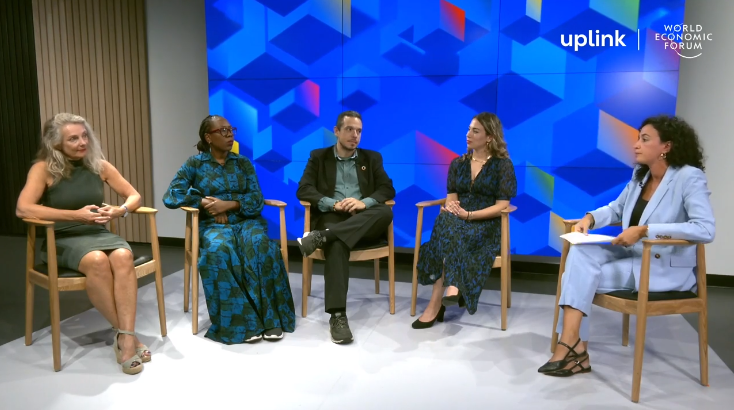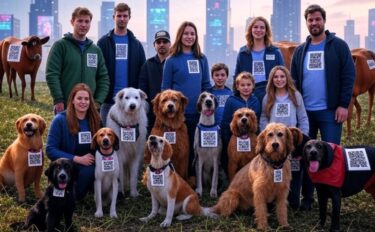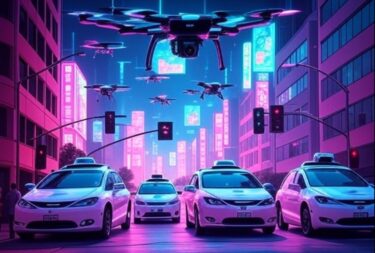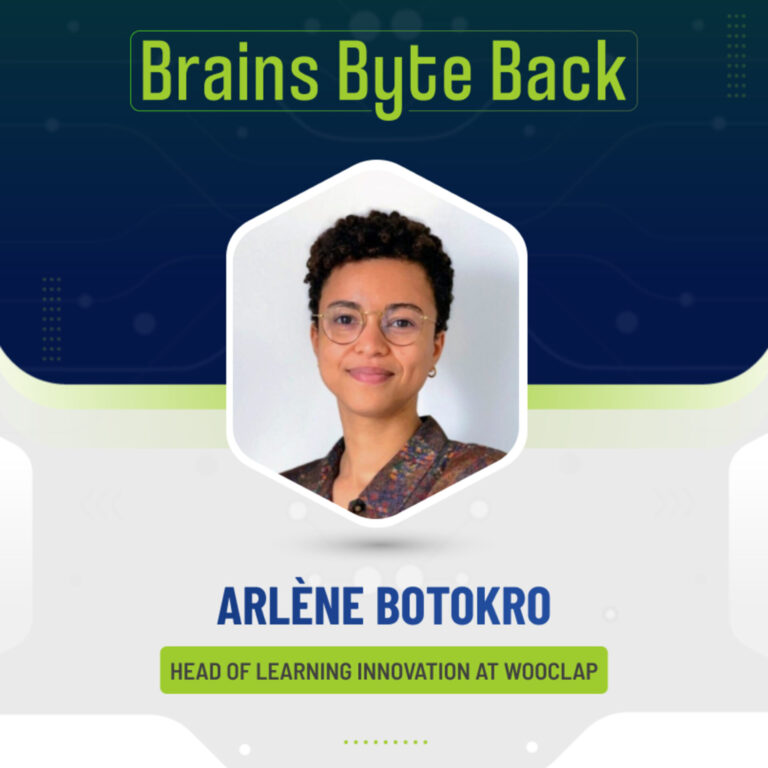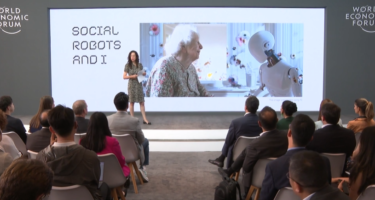Implementing digital ID for products, investing in alternative proteins like insects, and nature-based solutions such as putting a price on water and natural capital are all potential ways to further the UN’s Sustainable Development Goals (SDGs), according to a World Economic Forum (WEF) panel.
As part of its Sustainable Development Impact Meetings 2023, the WEF held a discussion panel called “How Tech Is Closing the SDG Gap” on Tuesday.
On the topic of technologies for closing the SDG gap, Accenture’s global circular economy lead Wesley Spindler said that the metaverse, AI, and big data were all technologies that organizations were utilizing.
Spindler highlighted a company that Accenture had worked with in particular called EON-ID, which creates tiny RFID threads with a digitalized ingredients list that makes every product traceable in the clothing and fashion industry.
“They [EON-ID] work in the fashion industry, and they essentially provided a ‘digital product passport’ for fashion products to provide more transparency, more traceability, and ultimately help reduce the footprint of those products across the lifecycle”
Wesley Spindler, WEF Sustainable Development Impact Meetings, 2023
The WEF has been a big proponent of digital ID for people and objects, including clothing, as they contribute to the circular economy.
The circular economy sounds great at first glance, with its emphasis on reusing and recycling materials; however, the circular economy Product as a Service business model is the inspiration for the WEF’s “You’ll own nothing and you’ll be happy” phrase.
According to the WEF, the Product as a Service circular economy business model is one where “the customer purchases a service for a limited time while the provider maintains ownership of the product and remains incentivized for the product’s ongoing maintenance, durability, upgrade, and treatment at the end of its use.”
As Royal Philips Electronics CEO Frans Van Houten told the WEF in 2016:
“In circular economy business models, I would like products to come back to me as the original designer and manufacturer, and once you get your head around that notion, why would I actually sell you the product if you are primarily interested in the benefit of the product?
Frans Van Houten, WEF, 2016
Maybe I can stay the owner of the product and just sell you the benefit as a service”
So while circular economy advocates preach about sustainability and recycling, they are also in favor of “moving away from ownership & accumulation towards service-based models,” as described in The Circularity Gap Report 2023, which was launched at this year’s WEF Annual Meeting in Davos.
“Rabobank is not an institute that can prescribe what is a healthy diet, but we can invest in insect-based joint ventures, or we can invest in plant-based alternatives, and that can proof-case the appetite for consumers whether there’s really a market for this”
Suzanne van Tilburg, WEF Sustainable Development Impact meetings, 2023
Moving away from digital ID for clothes and a circular economy to nature-based solutions for closing the SDG gap, Rabobank Group’s global head of food and energy networks Suzanne van Tilburg told the WEF panel on Tuesday that investing in technologies and companies that produce insect proteins and other “nature-based solutions” could help close the SDG gap.
“What we see [is] there’s an urgency to modernize, incentivize, and sustainalize the value chain,” she said, adding, “and in order to do so, it’s just not enough to stick to traditional ways of financing for instance, producing, or consuming, so from all those levels you do need innovations to find creative solutions but also accelerate those transition pathways already out there.
“Look at regenerative agriculture or alternative proteins. Rabobank for instance is not an institute that can prescribe what is a healthy diet, but we can invest in insect-based joint ventures, or we can invest in plant-based alternatives, and that can proof-case the appetite for consumers whether there’s really a market for this because what we can do as a bank is unlock that access to finance and to markets.”
When asked why nature-based solutions were important to achieving SDGs, Van Tilburg said that there was no bigger carbon sink than land and that the problem with water was that there was no price on it.
“I think nature-based solutions are more essential than we realize […] If you look at the solution going forward, there’s no other more natural, bigger carbon sink than land,” she said.
Van Tilburg then added:
“We talk about windmill parks and about solar parks, but never about land parks, and it’s there for free. The water is there for free, and the problem of water is there is no value on it — there’s no price on it.
SUZANNE VAN TILBURG, WEF SUSTAINABLE DEVELOPMENT IMPACT MEETINGS, 2023
So, I think all-in-all, if you talk about nature-based solutions, you talk about investing in nature and unlocking natural capital, and that has to be priced”
Van Tilburg’s words echo those of ex-Bank of England adviser Michael Sheren at last year’s COP27, when he talked about “putting prices on water, on trees, on biodiversity,” and how we should “start tokenizing” natural assets.
“We’ve spent a lot of time in the G20, a lot of time in the BoE trying to understand where value is created — not just in our systems, but also where the threats to it are,” said Sheran back in November 2022.
“Carbon, we already figured out, and carbon is moving very quickly into a system where it’s going to be very close to a currency, basically being able to take a ton of absorbed or sequestered carbon and being able to create a forward-pricing curve, with financial service architecture, documentation,” he added.
And with carbon being close to a currency, “There are going to be derivatives.”
According to Sheren, “The southern part of the world has value far greater than large elements of the northern part.
“And we start thinking about putting prices on water, on trees, on biodiversity, we find where does that sit?”
The ex-central banker added that Indonesia, Brazil, and Africa were “absolutely critical” because “we need their natural capital as a system-based world more than we need that 66 billion [gold coins] we’ve got sitting in the basement of the Bank of England.”
“How do we start tokenizing?
“How do we start building systems that actually create not only the value, but transfer that value around the world?” Sheren pondered.



